2018 Georgetown University Press. All rights reserved. No part of this book may be reproduced or utilized in any form or by any means, electronic or mechanical, including photocopying and recording, or by any information storage and retrieval system, without permission in writing from the publisher.
The publisher is not responsible for third-party websites or their content. URL links were active at time of publication.
Library of Congress Cataloging-in-Publication Data
Names: Marcus, Raphael D., author.
Title: Israels long war with Hezbollah : military innovation and adaptation under fire / Raphael D. Marcus.
Description: Washington, DC : Georgetown University Press, 2018. | Includes bibliographical references and index.
Identifiers: LCCN 2017058064 (print) | LCCN 2018012278 (ebook) | ISBN 9781626166127 (ebook) | ISBN 9781626166110 (pbk. : alk. paper) | ISBN 9781626166103 (hardcover : alk. paper)
Subjects: LCSH: Israel. Tseva haganah le-YisraelHistory. | IsraelHistory, Military20th century. | IsraelHistory, Military21st century. | Hizballah (Lebanon)History. | IsraelMilitary relationsLebanon. | LebanonMilitary relationsIsrael. | Operational art (Military science)
Classification: LCC UA853.I8 (ebook) | LCC UA853.I8 M358 2018 (print) | DDC 956.05dc23
LC record available at https://lccn.loc.gov/2017058064

This book is printed on acid-free paper meeting the requirements of the American National Standard for Permanence in Paper for Printed Library Materials.
19 18 9 8 7 6 5 4 3 2 First printing
Printed in the United States of America
Map by Chris Robinson.
Cover design by N. Putens.
Cover image by Alex Lerner/Shutterstock.com.
ACKNOWLEDGMENTS
I AM DEEPLY INDEBTED to many people who helped me throughout my odyssey of completing this book. At Kings College London, my PhD supervisor, Prof. David Betz, provided excellent mentorship and guidance throughout the projects development. Thanks to my secondary supervisor, Prof. Sir Lawrence Freedman, for his kind assistance and for reading over the final draft of this study as a doctoral dissertation. I appreciate the helpful comments of Prof. Theo Farrell, Dr. Ahron Bregman, and Lt. Col. (Ret.) Dr. Frank Hoffman over the years. Dr. David Parker and Dr. Joana Cook also deserve mention for their friendship and support throughout our times as stressed doctoral students.
Field research in Israel and Lebanon was no easy task, and I am appreciative to those who helped facilitate interviews and meetings. I am deeply thankful to each and every interviewee who candidly spoke with me, on and off the record, during my research trips to the Middle East. It goes without saying that any errors, omissions, or mistranslations from Hebrew or Arabic are my responsibility alone and are not the responsibility of any of the interviewees.
I acknowledge the financial support of the Department of War Studies, the Faculty of Social Science and Public Policy, and the Graduate School at Kings College London, which enabled several field trips to the Middle East and my participation in international conferences where I presented my research. I am also grateful to the Allan and Nesta Ferguson Charitable Trust for their generosity.
For my trip to Lebanon, Prof. Norton Mezvinsky gave much helpful advice in the earliest stages of doctoral research, and I am appreciative of the collegiality of Dr. Mohsen Saleh of the Al-Zaytouna Center for Studies and Consultations in Beirut. In Israel, Dr. Eitan Shamir provided friendly guidance and much assistance during my trips. Dr. Ofra Graicer was especially generous with her time in our meetings, and her patience was appreciated when trying to help me understand the nuances of Systemic Operational Design. Thanks also to Brig. Gen. (Res.) Meir Finkel, Dr. Eado Hecht, and Carmit Valensi for their insights and interesting discussions along the way. Special thanks are due to my great friend Dr. Eytan Debbi and his family for generously hosting me in Israel on my numerous trips. Throughout the publication process, the team at Georgetown University Press, especially Don Jacobs, Kathryn Owens, and Don McKeon, have been a pleasure to work with, and I thank them for all their efforts toward making this book a reality.
I would like to dedicate this book to the memory of my dear grandmother, Sylvia Marcus, for her passionate commitment to lifelong learning and ardent support of education. I would also like to dedicate it to the memory of Prof. Joseph Yossi Kostiner, scholar, teacher, and mentor, who instilled in me great enthusiasm for Middle Eastern studies and provided the original inspiration for this research project.
I would not have been able to complete this odyssey without the warm and enduring support of my dear family, cousins, grandmother, and family friends in London, who provided a home away from home during my years working on my research. I am very grateful for the encouragement from my family, friends, and loved ones in New York, especially during the difficult homestretch. I am deeply indebted to my parents and sister for their steadfast encouragement, support, humor, boundless patience, and continued belief that I would somehow eventually be able to complete this project.
All views are strictly my own.

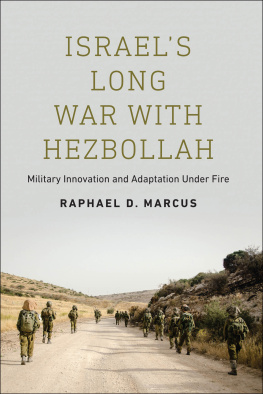

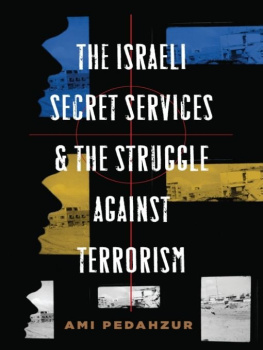
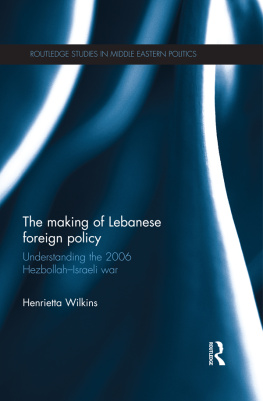
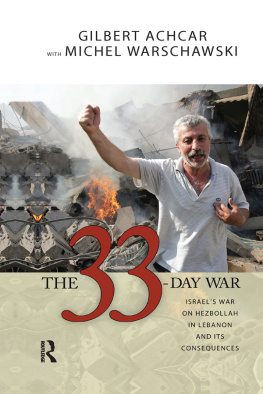
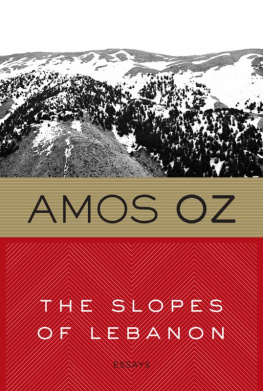
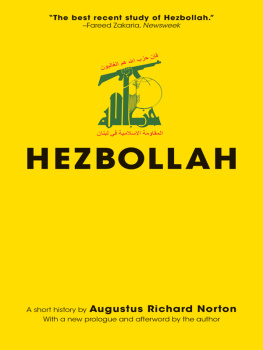

 This book is printed on acid-free paper meeting the requirements of the American National Standard for Permanence in Paper for Printed Library Materials.
This book is printed on acid-free paper meeting the requirements of the American National Standard for Permanence in Paper for Printed Library Materials.